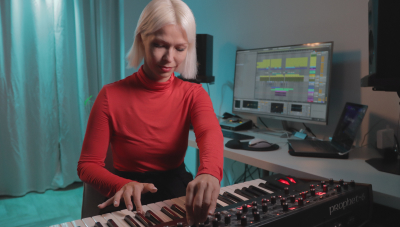You might not realize it, but the alignment of your skeletal bones when you are standing or sitting has a major impact on muscle comfort. So, if your posture isn’t correct, and especially after long periods of time, it can cause a lot of pain. This pain can become chronic and lead to temporary or even permanent disability.
When we’re starting our career, we’ve got so many other things in our head we think are more important: the equipment, our setups, networking, etc. That’s all fine. However, imagine if we look at our body as a piece of equipment, essential to perform your shows… wouldn’t you want to keep it in its best condition to make it last as long as possible, especially knowing that it’s irreplaceable?
If you think we’re exaggerating, you should have a listen to Paco Osuna’s story about his condition after years of having bad posture while DJing: listen to him in his Masterclass “My DJ Techniques” to see it’s no joke.
Let’s quickly have a look at some points you can improve to prevent injury in the long term. Try to introduce them as soon as possible while you’re practicing at home so it becomes second nature during the stress of preparing for an event and when you’re playing live.
1. Adjust the height of your table
After hours of mixing, any continuous need to bend your back, lean over, or look down will kill you. Prevent this problem by remembering about the table height before starting your session.
For maximum comfort and minimum strain, it should be positioned so that your elbows are about 90-degree angle, or slightly more, when you put your hands over your DJ equipment. You should be able to keep your wrist in a kind of a neutral and relaxed position in relation to the control surface.
If more than one DJ will use the same table, DJ tables or booth counters will usually have an average height of 37 inches (94 cm), so you will have to adapt to it to suit you. It’s not a bad idea to bring some portable blocks with you or some pads to put under your equipment if necessary, so you can be more comfortable.
On occasions when this can’t be arranged, get your hands closer to the decks by standing with your legs a bit further apart, instead of bending your back. On the other hand, if the table is too tall for you, you may ask for a floor step to make you a bit taller.
2. Keep a good posture
Now, the size and height of the equipment isn’t everything. It’s equally important how you keep your body in a posture that lets you stand for a long time, doing your same repetitive movements, without hurting yourself:
▪️WRISTS AND ELBOWS: In the same way office clerks try to prevent developing tendonitis or the carpal tunnel syndrome by using keyboard or mouse rests, you must find your own ways to prevent injury in these areas of the body depending on the equipment you use. The main rule is to be able to position your DJ equipment so that your wrists and elbows are as relaxed as possible to reduce fatigue when you use it.
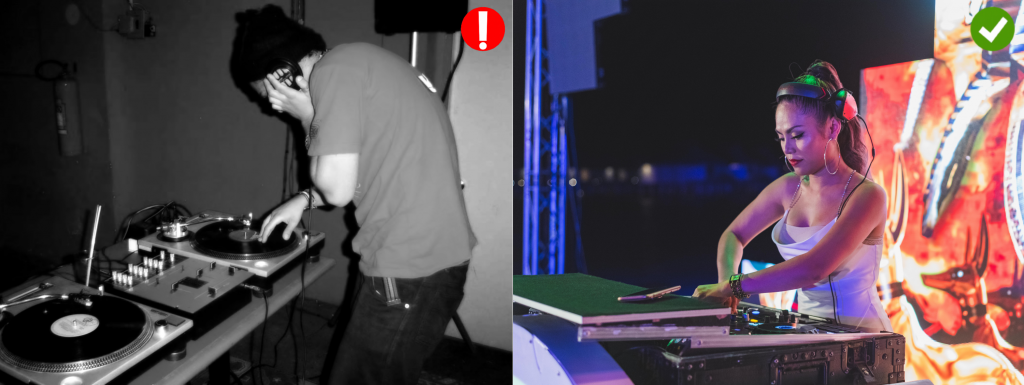
▪️BACK: Remember to stand up straight and reach out with your arms rather than extending your body over the DJ equipment. Try to work with the DJ gear below your arms so you don’t tighten your arm position and can keep wrists relaxed as we mentioned before.
Another detail that might seem insignificant but really isn’t when standing for extended periods of time, is the shoes you’re wearing. If they’re not comfortable, they can do a surprising amount of damage to your back. They can also drastically affect your posture, forcing your back into an unnatural position.
3. Stretching and warming up
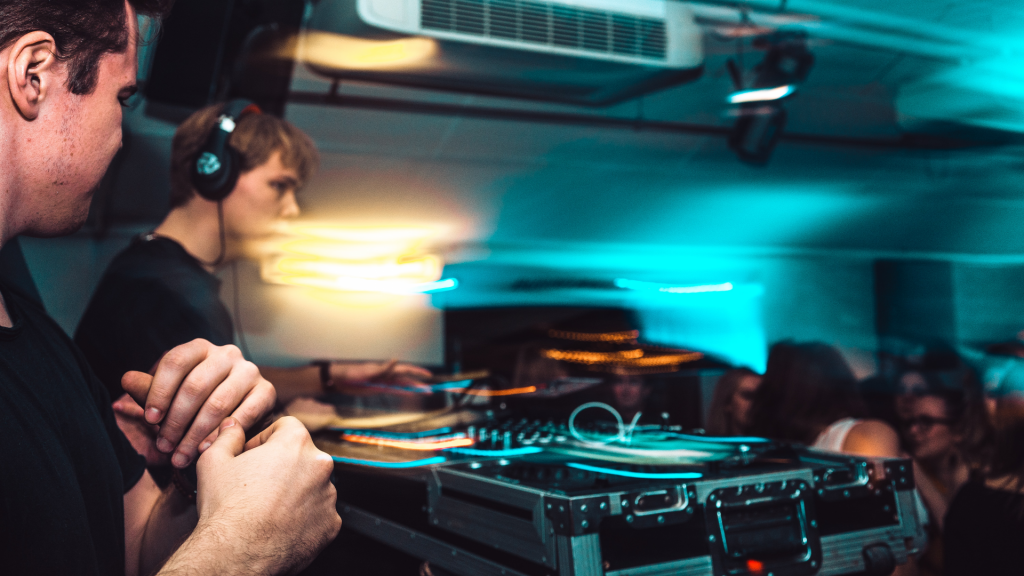
As with any physical activity, stretching will keep you injury free when DJing. It’s true that any quick movement you make without warming up could result in a pulled muscle, which unfortunately can cause tendonitis or any other long-term, debilitating pain.
Stretching will also activate your blood circulation before the show, which will help you feel more relaxed and focused and, therefore, improve your peak performance on stage.
So, get warmed up with some easy stretches for about thirty seconds. You can do your upper chest, front neck muscles, shoulder and forearm muscles, wrists and even the fingers. And of course, most importantly, your back: try putting your hands behind your back and gently stretch your spine into a more up-right position. You can also do gentle twists at the waist, turning your body to the left and then the right a few times. This will help prepare your spine too.
Remember not to be too aggressive, you’re just warming up. It’s also a good idea to stretch again after the show to get your body cooled down after all the rush of adrenaline from the gig.
4. Screens position
If you are using a laptop or other separate screens, you want the top of your screen to be at or slightly below your natural eye level. It’s really important to be able to work with your laptop at a comfortable height. Otherwise, you’ll end up keeping a bad posture during your sessions without even noticing.
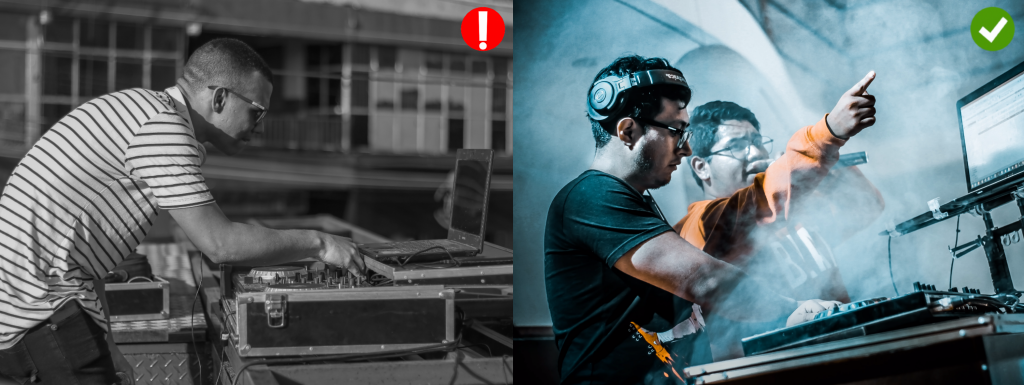
So, if you have to bend down to be able to read the screen of your laptop, consider investing in a stand that lets you adjust the height of your computer. If the problem is that you can’t see what’s going on in your screen and have to force your posture to do so, try either increasing font size on your DJ software or upgrading to a laptop with a larger screen.
5. When you’re not DJing
Do you spend a lot of time sitting down? Or maybe you have another job during the day that requires you to stand or move in certain repetitive motions? Whatever you’re doing when you’re not on stage or rehearsing will probably have an effect on your posture and muscles, and will definitely have an impact on your DJing too.
Basically, it’s super important to take care of your body whenever you can. The more you remember to do so, the more you get to know your body, and the more it becomes one of the best habits you can keep in your life. As Jean Claude Van Damme once said: “God gave me a great body so it’s my duty to take care of my physical temple”.
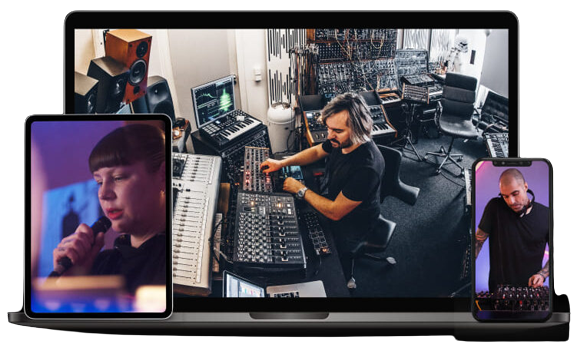
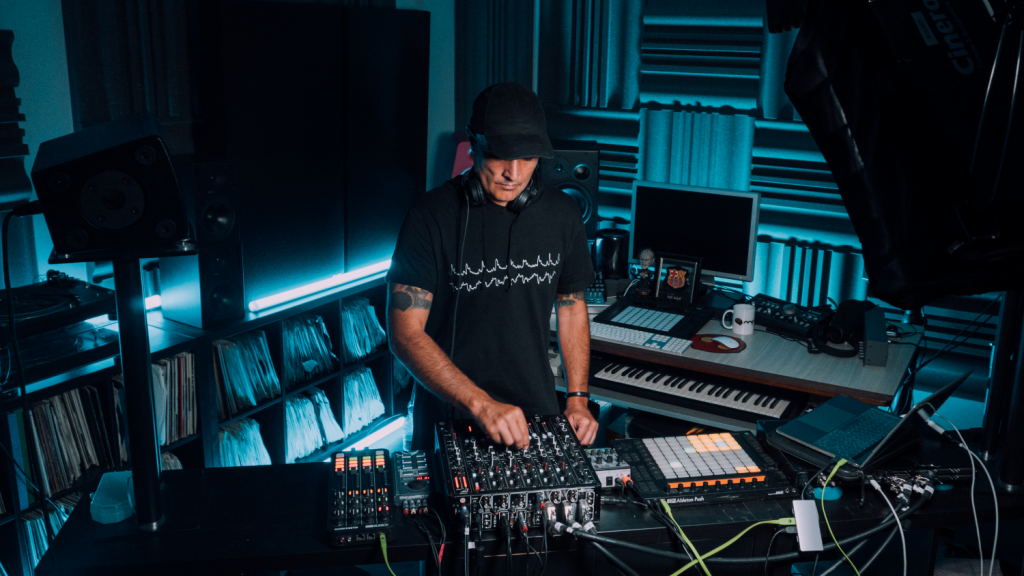
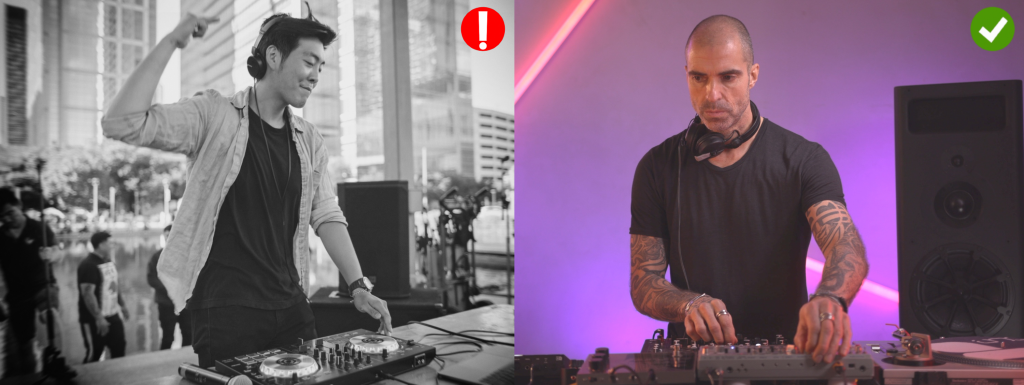
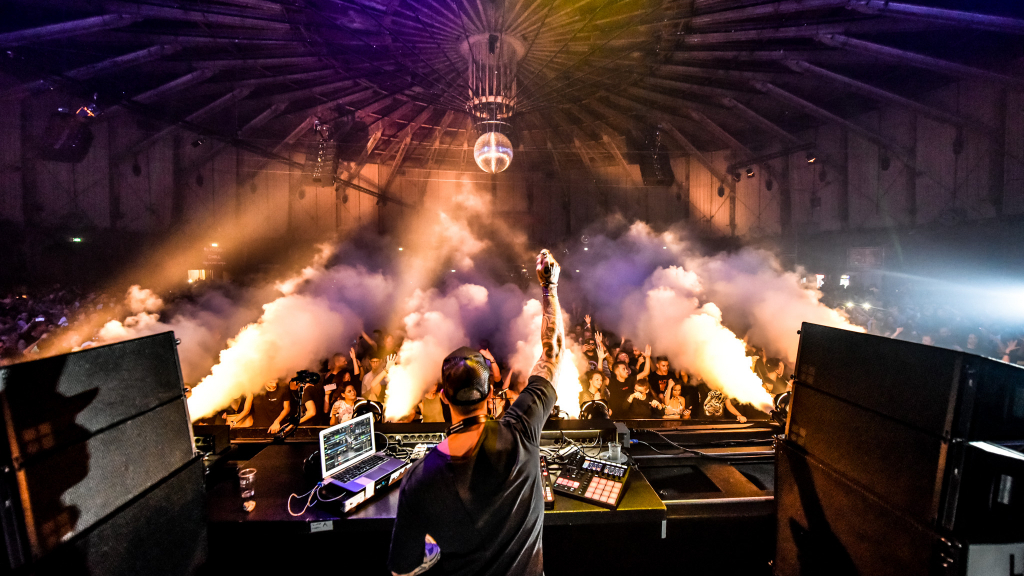
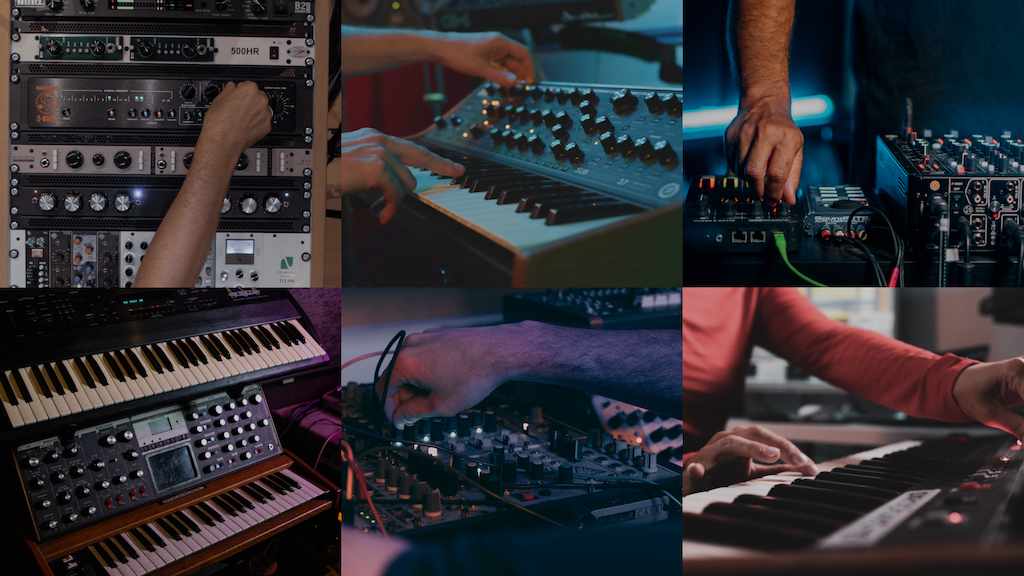
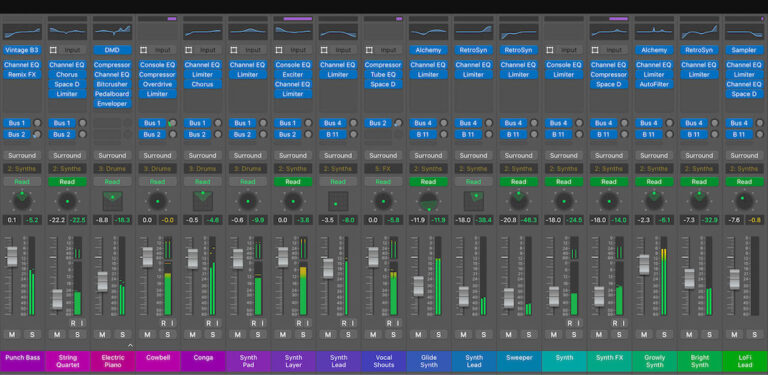
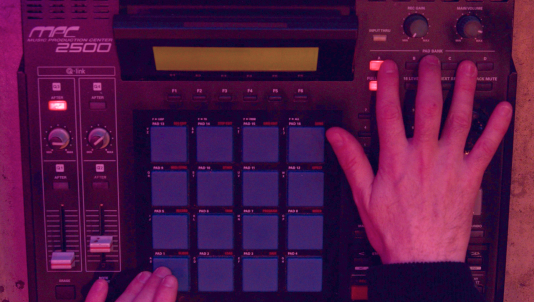

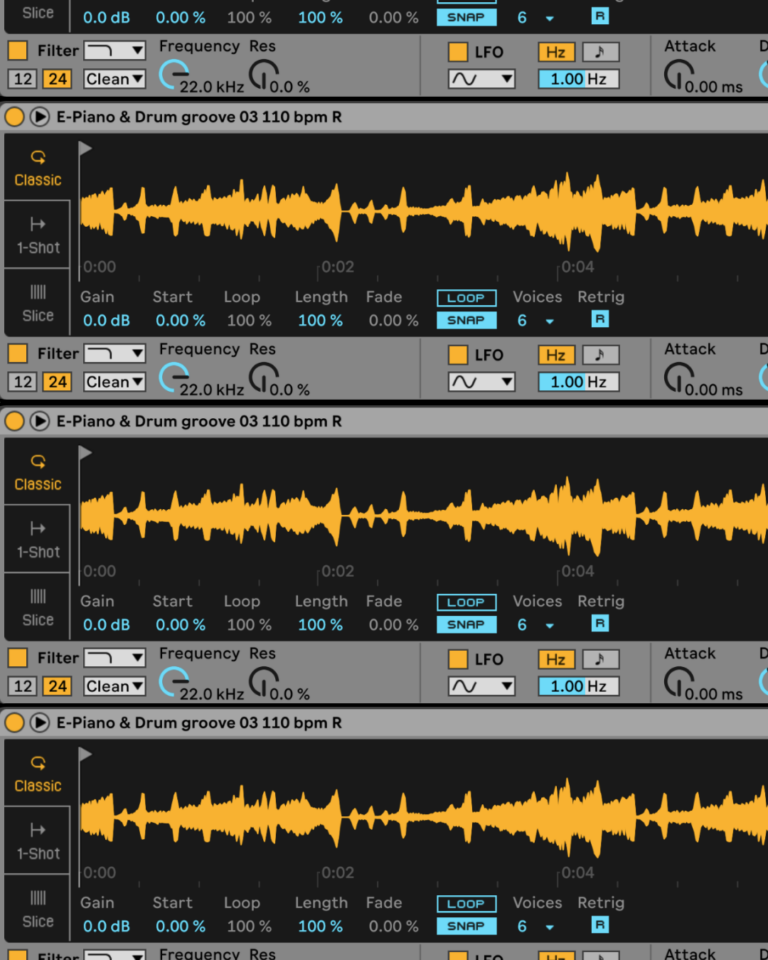
 50 Industry Music Production Tips You Must Know
50 Industry Music Production Tips You Must Know


